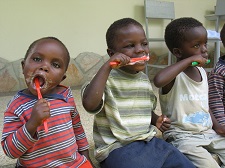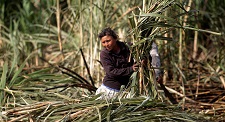Programme
The minor consists of four parts. The first three components work from a theoretical foundation using scientific literature and concepts in order to give you tools to analyse various development issues in detail. The last component is a practical internship in a developing country.
The four parts are:
- A Course: Justice (4 EC)
- B Course: Introduction to development issues (10 EC)
C Course: Culture and interculturality (6 EC)
D Internship (10 EC)


The internship is the synthesis module of all parts of this minor. For four weeks, you will participate in an existing project in a developing country where – in addition to substantive goals – you will have to show that you are able to collaborate with people from different cultures.
In the months leading up to the internship, you will prepare yourself and your stay abroad during weekly meetings. On the basis of a work plan, you formulate learning objectives, you describe the project and you prepare for local conditions. The preparation includes making the previously mentioned work plan, a culture analysis and several guest lectures by experts.
Examples of internships in a developing country in recent years:
- Organizing activities for young people in Malawi;
- Making a video report about a sustainable agricultural project in the Moluccas;
- Supporting an exchange project between schools in the Netherlands and Romania;
- Reorganising and maintaining a school building in rural Nepal;
- Teaching disabled children in Vietnam.
Costs
In addition to the standard costs of a stay abroad, the internship in a developing country brings additional costs of around €2000 (incl. flight). It also requires necessary preparation concerning, for example, a visa. In cooperation with your teacher you’ll search for a suitable place for your internship.
